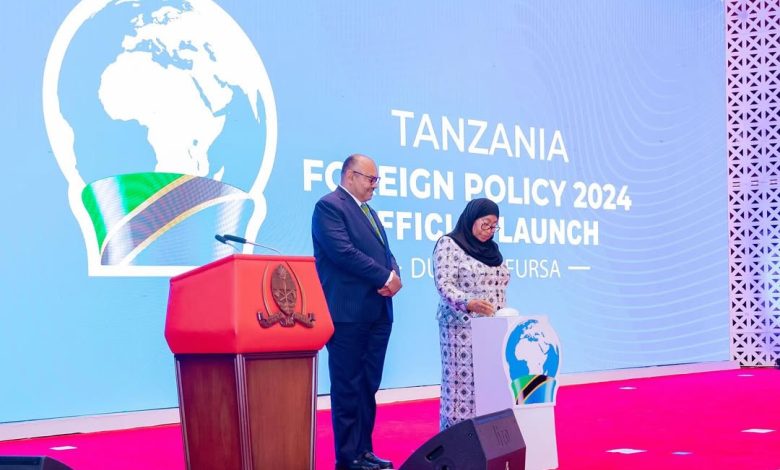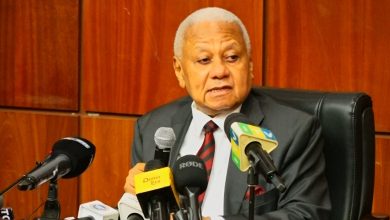TZ launches revised foreign policy to align with global shifts

DAR ES SALAAM: THE government has unveiled a revised edition of its Foreign Policy (2001–2024), marking a significant reform aimed at aligning the country with today’s fast-evolving global economic landscape and enhancing its role in international affairs.
Speaking during the launch event held yesterday at the Julius Nyerere international Convention Centre (JNICC) in Dar es Salaam, Minister for Foreign Affairs and East African Cooperation, Ambassador Mahmoud Thabit Kombo said the review follows nearly 24 years of implementation, during which Tanzania, Africa and the world at large have undergone significant changes.
The updated policy is built on eight strategic pillars, including the promotion of economic diplomacy, attracting large-scale investments, leveraging Tanzania’s strategic geographic location and fully utilising opportunities provided by the African Continental Free Trade Area (AfCFTA).
“This revised policy strengthens our economic resilience by advancing private sector investment, encouraging public-private partnerships and empowering local businesses to venture beyond our borders,” Ambassador Kombo stated.
According to Amb Kombo, the policy also aims to raise Tanzania’s global profile by promoting its economic, political and social assets, while using its cultural heritage, traditional values and the Kiswahili language as tools of soft power to expand influence and markets across Africa and beyond.
It also recognises the potential of the Tanzanian diaspora, including both citizens and individuals of Tanzanian descent without citizenship, as vital contributors to personal advancement and national development.
Minister Kombo said the policy further explores new areas of development cooperation, such as the blue economy, green economy, digital economy and strategic mineral sectors, broadening Tanzania’s economic engagement at the global level.
It also calls for deeper collaboration with other countries and international organisations to address global challenges such as pandemics, climate change, terrorism, cross-border crime and the adoption of new technologies.
Another core element of the revised policy is the integration of digital public diplomacy to promote transparency and accountability in democratic governance.
This includes increasing public awareness of the activities of Tanzanian embassies abroad and expanding global opportunities, particularly for Tanzanian youths.
ALSO READ: Tanzania launches new Foreign Policy that aligns with global transformation
Highlighting the policy’s achievements, Minister Kombo noted that Tanzania has made significant progress over the past two decades, especially in areas of economic growth, regional integration and peace and security promotion.
“We are proud of what we’ve achieved, but we remain focused on future goals aligned with Tanzania’s Development Vision 2050 and Zanzibar’s Development Vision 2050,” he said.
He stressed that Tanzania’s ambition is to become an uppermiddle-income economy by the end of the vision period, playing a more influential role in global economic and trade affairs.
Before embarking on the policy revision, the ministry conducted a comprehensive assessment of the 2001 Foreign Policy, which showed that Tanzania had made notable strides in its economic, political and social diplomacy.
“Tanzania has remained a regional leader in peace and security, contributing to peacekeeping missions and conflict mediation across Africa and beyond,” Ambassador Kombo noted.
He also cited Tanzania’s reclassification by the World Bank in 2020 from a low-income to a lower-middle-income country as a major milestone.
On the regional front, Tanzania continues to play an active role in regional blocs such as the East African Community (EAC) and the Southern African Development Community (SADC), promoting not only economic integration but also peace, security and good neighbourliness in the region.





